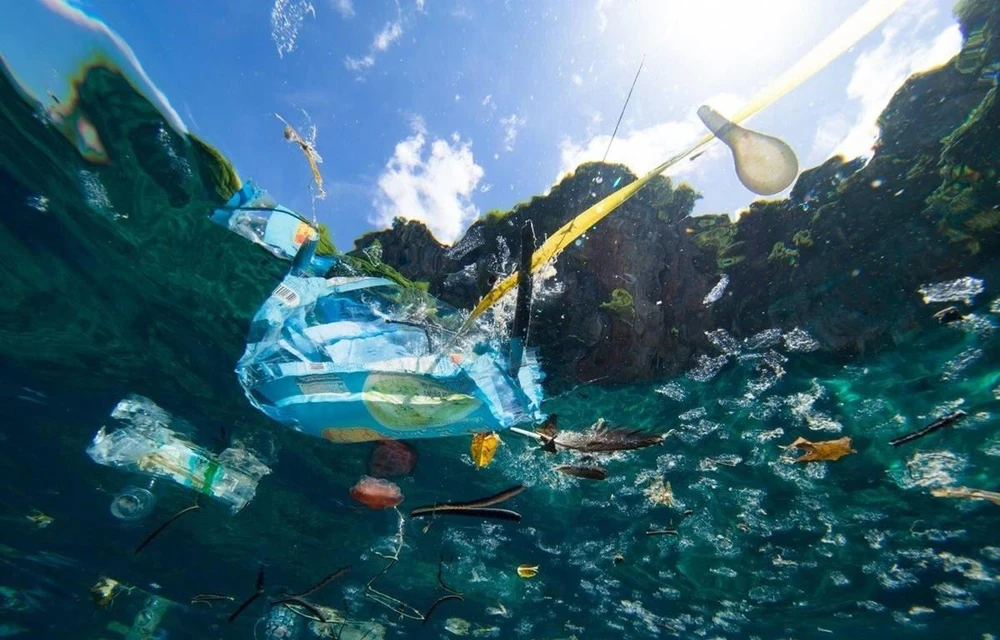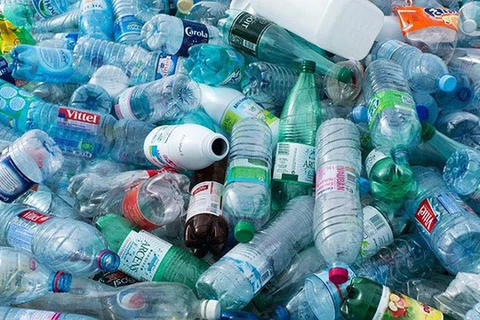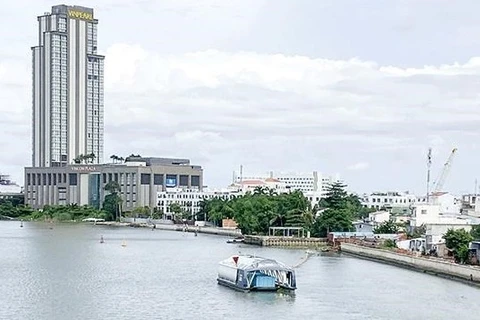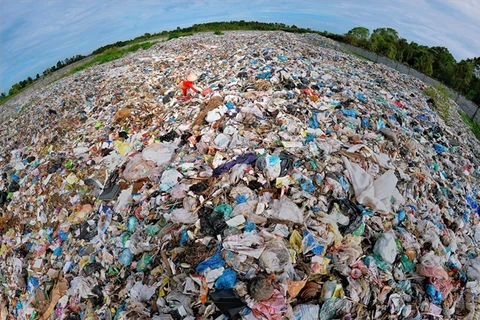
Hanoi (VNA) – Ocean plastic waste has gone from bad to worse across the globe, requiring countries, including Vietnam, to pen urgent solutions, according to the Vietnam Administration of Seas and Islands under the Ministry of Natural Resources and Environment.
Since there are around 8-20 million tonnes of plastic waste flowing to the seas each year, experts said that reduction of plastic trash is an urgent solution. The focus should be on preventing the fact that “there will be more plastic than fish in the sea”.
According to PhD Ta Dinh Thi, Vice Chairman of the National Assembly's Committee on Science, Technology and Environment, marine plastic pollution is an urgent issue since it has critical impacts on ocean ecosystems and biodiversity.
With a coastline of more than 3,260 kilometres, and thousands of islands, Vietnam has huge potential to develop a sea-based economy; however, its ocean is being seriously polluted.
According to a report from the Ministry of Natural Resources and Environment, the amount of plastic consumption per capital in Vietnam rose more than 14 times between 1990 and now. On average, a Vietnamese person now utilises 54 kilogrammes of plastic a year, as compared to 3.8 kilogrammes in 1990.
Some 37.43 percent of the plastic waste dumped into the ocean is packaging, wrappers, and 29.26 percent household appliances.
Meanwhile, statistics from the Vietnam Institute of Fisheries Economics and Planning under the Ministry of Agriculture and Rural Development showed that total plastic amount used for shrimp aquaculture is up to 1,955 tonnes per hectares per year.
Plastic waste also threatens tourism as well since many of Vietnam’s feature beaches can be found strewn with plastic.
Resident Representative of the United Nations Development Programme (UNDP) in Vietnam Caitlin Wiesen affirmed that the oceans are facing increasing threats and risks caused by climate change, natural disasters, environmental pollution, and overexploitation of natural resources.
Vietnam generates some 3.7 million tonnes of plastic waste into the environment each year, of which only 10 to 15 percent is collected for recycling while 730,000 tonnes are dumped into the oceans, she said.
With some 2,000 tonnes of plastic waste ending up in the ocean each day, there will be more plastic than fish in all oceans by 2050, Caitlin Wiesen stressed.
More drastic measures needed
Deputy Director – General of the Vietnam Administration of Seas and Islands Pham Thu Hang also highlighted plastic waste pollution in the oceans is an urgent issue globally, therefore, it is a must to reduce plastic waste.
The Vietnamese government has made concerted efforts to handle ocean plastic waste by renewing its policies on environmental protection, she said. Hang added that the amended Law on Environmental Protection was adopted, legalising contents related to plastic management, recycling and treatment, and development of circular economy for plastic.
Besides the national action plan on ocean waste management until 2030, Vietnam is carrying out the project on proactive preparation and participation in building a global agreement to tackle marine plastic pollution.
Most recently, Vietnam engaged in the National Plastic Action Partnership, eyeing to reduce 75 percent of marine plastic waste by 2030, she said.
However, Hang said there are formidable challenges to handle ocean waste pollution, including shortage of coordination mechanism among countries, legal frameworks, and financial mechanisms, among others.
“In this context, we should take urgent action to settle ocean plastic waste pollution. It is necessary to build specific measures and progress to realise the global agreement to tackle ocean plastic waste pollution”, Hang stressed.
Additionally, Hang recommended Vietnam and other countries develop a sound financial mechanism, and work to support technology transfer to address plastic waste pollution both in the mainland and the oceans./.
























